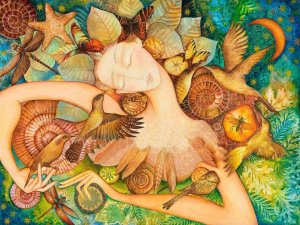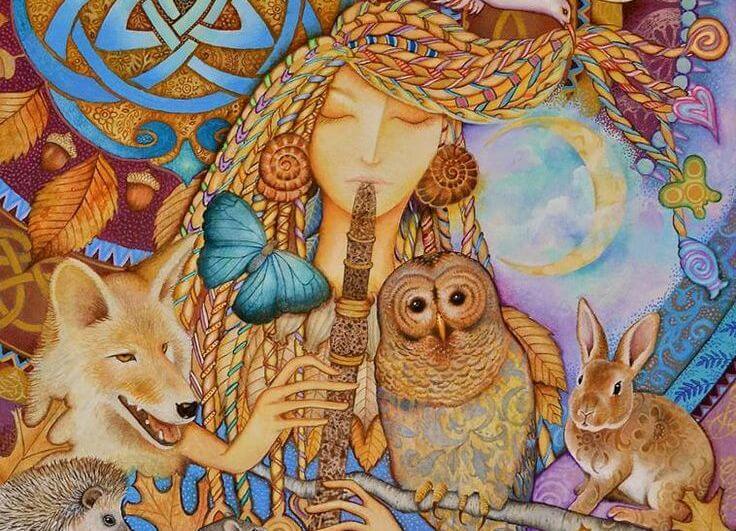The Family We Choose


Written and verified by the psychologist Valeria Sabater
It is often said that what is important about a family is not that they live together, but rather that they are united. Nevertheless, that is not always possible. Families can be a complicated kaleidoscope of different interests and emotions that do not always coincide as harmoniously as we would like.
Sometimes, people believe that just because there is a genetic bond between two people, there is a moral obligation for those people to be emotionally bonded together, too. In some instances, this implies that a person has a responsibility to have a relationship with someone who may have caused them harm, abandoned them, or who simply does not “accept them.”
Blood makes us related, of that there is no doubt, but it is loyalty that creates authentic family. By that definition, we can include not only our closest family members, but also our most important friendships.
We all understand very well that family symbolizes an infallible pillar of life. It offers us roots, security, and unconditional love that envelops us completely. Family knows how to show warmth and walks with us through every step of our life.
We each have our own reality and our own experiences. For many of us, the word “family” can be a meaningless label that doesn’t immediately imply any significant relationship.
For that reason, it is always helpful to understand this term on a broader scale. If, in the past, we never had familial support, we have the right to create our own family. We can include in it all the people who offer us love, encouragement, and that kind of reciprocal relationship we all need.
Family as an essential commitment

No one comes into this world knowing how to create a family. In reality, theoretical knowledge or understanding is not needed. What is needed is willpower, affection, emotional intelligence, and commitment.
Being part of a family implies having a commitment to the people we love that benefits the personal growth of each one of them. It means supporting them to be who they are, and always respecting their differences.
Being a family isn’t something rigid and fixed. Families are entities in a continual process of evolution and transformation. Sometimes, that can also mean that some of the family’s components may be threatened because of these changes. Some examples are:
- Mothers that are unable to accept that their children mature and become more and more independent as the years pass.
- Parents who cannot open their eyes to the fact that their children have their own voice and their own ideas. These parents have a hard time accepting that their children want to forge their own path instead of the one they had in mind.
- Families that are never able to accept the addition of new members, like partners of children and the in-laws that come with those partners.
- When a member of the family moves away can also be a difficult occurrence.
Few organisms are so dynamic and changing, and in very few settings are so many problems, traumas, and disappointments produced as in the family.
It is the first social setting in which basic human dimensions are developed, like human attachment and a feeling of security. It is also where we are first recognized, and begin to explore the world. It is here that we develop relationships of intimacy and reciprocity. If these important processes of growth don’t take place, it can cause us to develop serious emotional gaps.
The purpose of a family is not only assuring the survival of its members, it is nourishing their emotions. It is encouraging their dreams, quelling their fears, inspiring hope, and offering unconditional and straightforward trust.
If our family does not offer a supportive environment, but rather a damaging one, we have every right to build our own with the people whom we choose.

The family that we choose
Family can also be applied to the people we choose to be around. We can choose to include one parent and not another, some of our siblings, and maybe a cousin who means a great deal to us. We can also choose our friends, our pets, and all the people who contribute positive emotions and significant relationships in our lives.
We should not have any moral dilemmas about not considering as family a blood relative who hurt or abandoned us. But we should avoid hatred and resentment. We must simply move forward and create our own meaningful bonds.
An authentic and real family is that which respects us as we are. Our minds, our individual voices, our personal choices, and our way of understanding the world. It gives and asks nothing in return. Reciprocity is not a game of power, but rather a balance in which recognition, loyalty, and understanding are key.
Family does not need a reason to be with us each and every moment. We carry it in our hearts because we look after them, and they us. We give each other confidence, and we are always together and support each other. Any distance between us does not matter.
We stick together through the bad times, and we enjoy a mutual understanding of each other in the good times. Our family is made up of the people we choose.
Images courtesy of Holly Sierra
It is often said that what is important about a family is not that they live together, but rather that they are united. Nevertheless, that is not always possible. Families can be a complicated kaleidoscope of different interests and emotions that do not always coincide as harmoniously as we would like.
Sometimes, people believe that just because there is a genetic bond between two people, there is a moral obligation for those people to be emotionally bonded together, too. In some instances, this implies that a person has a responsibility to have a relationship with someone who may have caused them harm, abandoned them, or who simply does not “accept them.”
Blood makes us related, of that there is no doubt, but it is loyalty that creates authentic family. By that definition, we can include not only our closest family members, but also our most important friendships.
We all understand very well that family symbolizes an infallible pillar of life. It offers us roots, security, and unconditional love that envelops us completely. Family knows how to show warmth and walks with us through every step of our life.
We each have our own reality and our own experiences. For many of us, the word “family” can be a meaningless label that doesn’t immediately imply any significant relationship.
For that reason, it is always helpful to understand this term on a broader scale. If, in the past, we never had familial support, we have the right to create our own family. We can include in it all the people who offer us love, encouragement, and that kind of reciprocal relationship we all need.
Family as an essential commitment

No one comes into this world knowing how to create a family. In reality, theoretical knowledge or understanding is not needed. What is needed is willpower, affection, emotional intelligence, and commitment.
Being part of a family implies having a commitment to the people we love that benefits the personal growth of each one of them. It means supporting them to be who they are, and always respecting their differences.
Being a family isn’t something rigid and fixed. Families are entities in a continual process of evolution and transformation. Sometimes, that can also mean that some of the family’s components may be threatened because of these changes. Some examples are:
- Mothers that are unable to accept that their children mature and become more and more independent as the years pass.
- Parents who cannot open their eyes to the fact that their children have their own voice and their own ideas. These parents have a hard time accepting that their children want to forge their own path instead of the one they had in mind.
- Families that are never able to accept the addition of new members, like partners of children and the in-laws that come with those partners.
- When a member of the family moves away can also be a difficult occurrence.
Few organisms are so dynamic and changing, and in very few settings are so many problems, traumas, and disappointments produced as in the family.
It is the first social setting in which basic human dimensions are developed, like human attachment and a feeling of security. It is also where we are first recognized, and begin to explore the world. It is here that we develop relationships of intimacy and reciprocity. If these important processes of growth don’t take place, it can cause us to develop serious emotional gaps.
The purpose of a family is not only assuring the survival of its members, it is nourishing their emotions. It is encouraging their dreams, quelling their fears, inspiring hope, and offering unconditional and straightforward trust.
If our family does not offer a supportive environment, but rather a damaging one, we have every right to build our own with the people whom we choose.

The family that we choose
Family can also be applied to the people we choose to be around. We can choose to include one parent and not another, some of our siblings, and maybe a cousin who means a great deal to us. We can also choose our friends, our pets, and all the people who contribute positive emotions and significant relationships in our lives.
We should not have any moral dilemmas about not considering as family a blood relative who hurt or abandoned us. But we should avoid hatred and resentment. We must simply move forward and create our own meaningful bonds.
An authentic and real family is that which respects us as we are. Our minds, our individual voices, our personal choices, and our way of understanding the world. It gives and asks nothing in return. Reciprocity is not a game of power, but rather a balance in which recognition, loyalty, and understanding are key.
Family does not need a reason to be with us each and every moment. We carry it in our hearts because we look after them, and they us. We give each other confidence, and we are always together and support each other. Any distance between us does not matter.
We stick together through the bad times, and we enjoy a mutual understanding of each other in the good times. Our family is made up of the people we choose.
Images courtesy of Holly Sierra
This text is provided for informational purposes only and does not replace consultation with a professional. If in doubt, consult your specialist.







